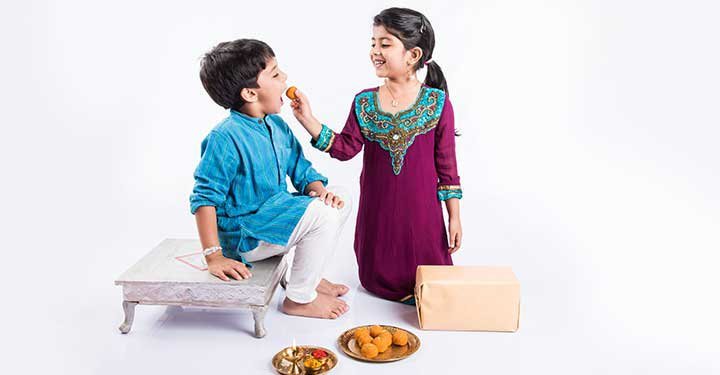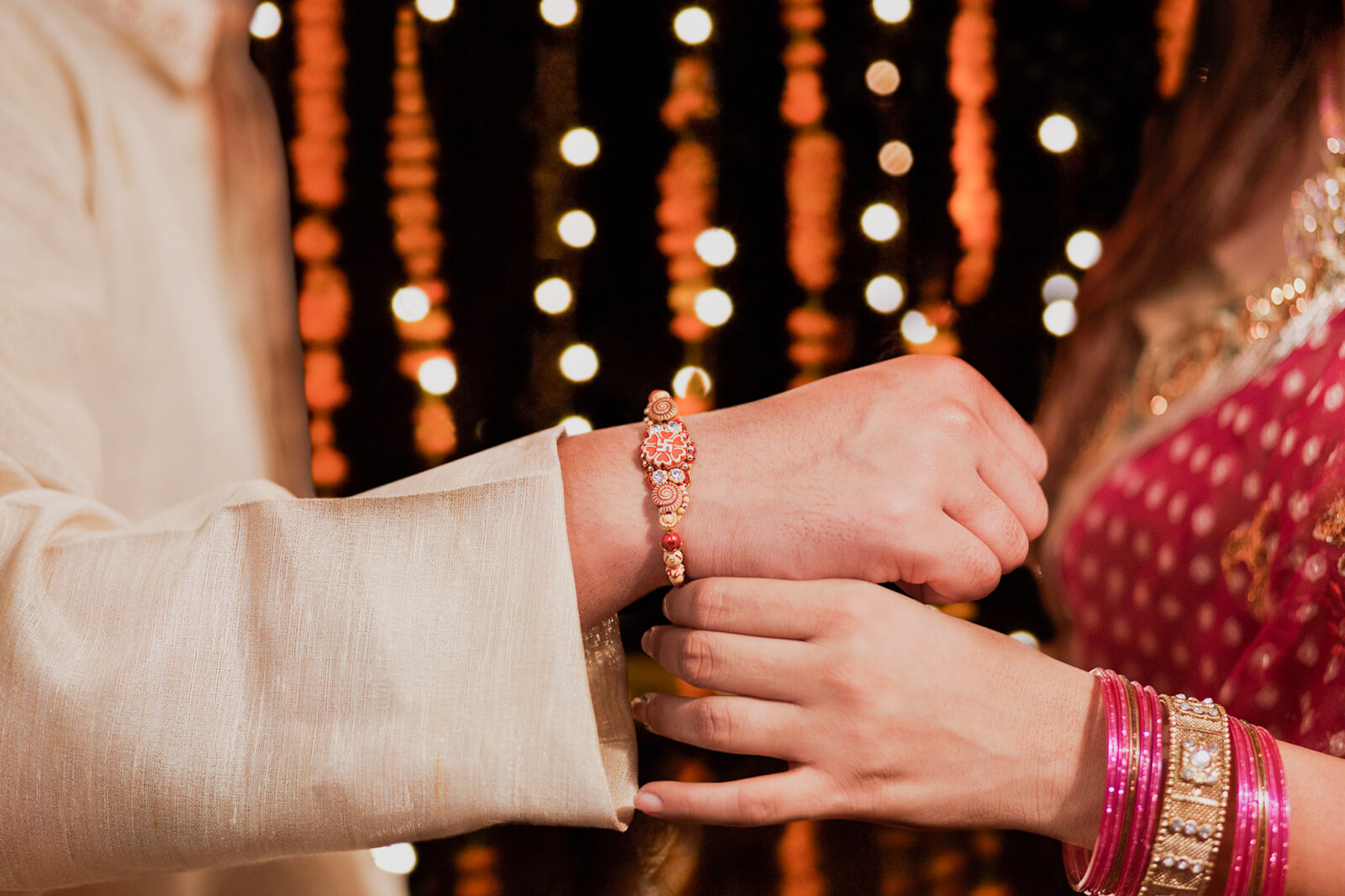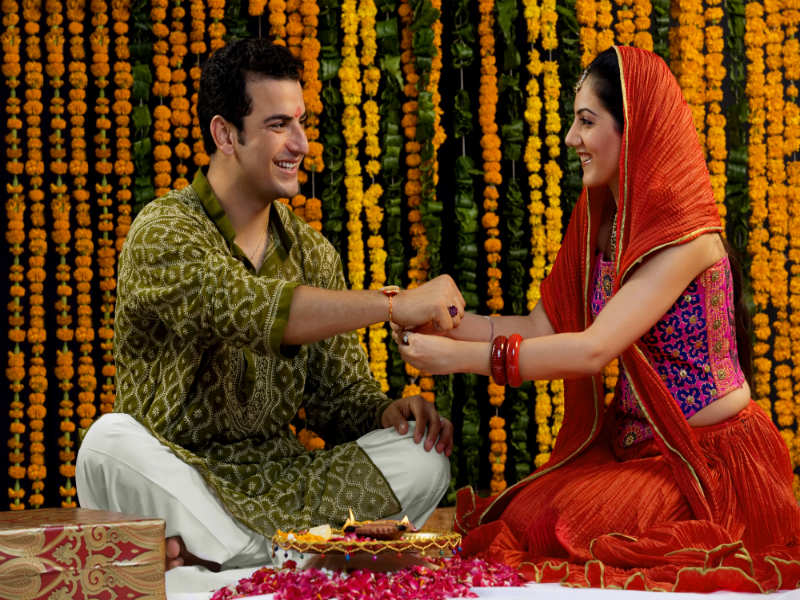Rakshabandhan is not just a festival of tying a rakhi and giving gifts, but it is a symbol of affection, trust, and cooperation between brother and sister. Today, this festival is getting reduced to social media show-off and formalities. Brother and sister stay apart for the whole year, but one day they give proof of ‘keeping the relationship’ by clicking a photo. The real protection is when both of them become each other’s support in difficult times, whether it is emotional or financial. The meaning of the festival is not likes, but presence in life. It is important to tie the thread of Rakhi not only on the wrist, but also in the heart.
Festivals are a mirror of India’s cultural soul. They are not just dates recorded in the calendar, but are living symbols of emotions, relationships, and social bonds linked for generations. Rakshabandhan is also one such festival, which symbolizes the bond of affection, protection, and trust in the relationship of brother and sister. But the question is, are we really following the basic spirit of this festival today, or has it also been lost in the glare of show and formality like other festivals?
A journey from tradition to the present
Rakshabandhan was once an occasion when sisters applied tilak on their brother’s forehead, tied a rakhi and took a promise of lifelong protection and support from them. This protection was not only to protect them from physical dangers but also an assurance of standing by them in every difficulty of life. Brothers also fulfilled this promise with great pride. This relationship flourished in the courtyard of the house, was reflected in letters, and lasted for a lifetime.
But today, tying a rakhi has become a ‘photogenic’ event. Posting pictures on social media, giving expensive gifts, ordering rakhis online – all this is making it superficial instead of touching the real emotion. Communication between brothers and sisters is decreasing, and the scope of the word ‘Raksha’ is also shrinking.

The changing meaning of defence
In old times, sisters did not depend only on their brothers, but they knew that in times of trouble, their brothers would become their shield. In today’s times, both brothers and sisters are so entangled in their busy lives that they are often unaware of each other’s problems. The meaning of protection has now become more limited to ‘financial help’ or ’emergency support’ than ‘physical protection’.
But there is an irony here too – when a sister is financially capable, she often helps her brother, but this sentiment does not find much space in the discussion of Rakshabandhan. In our culture, the responsibility of protection is still put on the brother in a one-sided manner, whereas in modern relationships, protection and cooperation should be from both sides.
Showdown phase
In the age of social media, festivals have become more of a public display than a private experience. Pictures of rakhi, videos of gifts, status updates – all these suppress the real soul of the relationship. Many times, brothers and sisters do not talk for a whole year, but on the day of Rakhi, they click pictures and post them online so that society gets proof of a ‘perfect relationship’.
This pretense hides the truth that many sisters are victims of domestic violence, mental harassment, or economic exploitation, and brothers remain silent even after knowing it. At the same time, many brothers want emotional support from their sisters in the difficulties of life, but they too get only the answer of ‘festival relationship’.
Lack of sensations
The basic idea behind Raksha Bandhan was that brothers and sisters should become each other’s strength and not weakness. But today, there is a dearth of sensitivity. Relationships may be of blood, but formality and distance are increasing in them. In cities, family bonding is getting weaker due to jobs, business and personal priorities.
This situation is a matter of concern not only for Rakshabandhan but for all family relationships. If the relationship between brother and sister is limited to a one-day celebration, then in the coming times, this festival will also become a festival of only ‘flowers, sweets, and photos’.

Equality approach
In today’s time, protection cannot be the responsibility of a man alone. Sisters should also play an equal role in the lives of their brothers – whether it is emotional support, advice or a shoulder to lean on in difficult times. A brother-sister relationship is meaningful only when there is equality and cooperation in it.
If a brother has to shoulder the responsibility of his sister’s marriage, education or career, then the sister also has the responsibility to understand her brother’s needs and help him. This balance can keep this relationship relevant even in modern times.
Direction of solution
We have to understand that the real value of the festival lies not in its rituals but in the emotions behind it. Both brothers and sisters should lay the foundation of their relationship with trust and cooperation, and not just maintain it with the help of gifts and photos. Talking to each other throughout the year, sharing small joys and troubles, is what keeps the relationship alive. A phone call, a meeting, or the feeling of standing together in difficult times creates a bond much stronger than the thread of Rakhi. It is more important to maintain it in reality rather than showing it on social media. Rakhi does not mean ‘likes’ but presence in life. Both brothers and sisters should take care of each other’s safety, respect, and needs. The thinking of one-sided responsibility has to change. While performing the ritual of Rakhi, it is important to give place to modern values in the relationship, like equality, freedom, and personal respect.
The real promise of Rakshabandhan
Raksha Bandhan is not just a festival but a true test of relationships. This day reminds us that there are people in our lives to whom we are connected without any selfishness. But if this connection survives only on the date of the calendar, then its real significance will be lost.
Today, there is a need to tie the thread of Rakhi not only on the wrist but also in the heart – a bond that fulfils the promise of affection, respect, and protection 365 days a year. Only then will we be able to say that we are truly fulfilling the promise of love and protection as brothers and sisters.







